Donald Trump became the third president in American history to be impeached on Wednesday on a largely party line vote, setting up a formal trial next year in the Senate.
Republicans lawmakers rushed to the speaker’s dais to cast their votes by paper ballot, which means the votes had to be tallied by hand by the Clerk of the House. The usual procedure is for lawmakers to vote via an electronic system.
But Democrats used the electronic system and 230 voted for the first article impeachment – abuse of power. That number hits the simple majority needed for approval. There were 197 voting no.
Two Democrats voted against the article – Colin Peterson of Minnesota, who said he would be a no vote, and Jeff Van Drew of New Jersey who is reported to be switching to the Republican Party.
Speaker Nancy Pelosi voted yes, casting a rare vote. The speaker of the House typically does not vote.
Tulsi Gabbard, a Democrat running for president, voted ‘present.’ Justin Amash, the Republican lawmaker turned Independent, voted yes.
Trump was in Michigan for a campaign rally as the House of Representatives held its impeachment vote. He was speaking in Amash’s district.
‘By the way by the way it doesn’t really feel like we’re being impeached,’ he told the crowd.
He turned to bragging about his accomplishments, including the Space Force which was just established by congressional vote.
‘I’ll be able to tell my kids someday and everybody else, see that Space Force, that was my baby,’ he said, drawing a loud roar from the crowd.
The president was silent as he left the White House on Wednesday to head to his rally but he tweeted furiously throughout the day.
‘SUCH ATROCIOUS LIES BY THE RADICAL LEFT, DO NOTHING DEMOCRATS. THIS IS AN ASSAULT ON AMERICA, AND AN ASSAULT ON THE REPUBLICAN PARTY!!!!,’ he wrote in a furious all-caps assault earlier in the day.
Speaker Nancy Pelosi kept her Democratic lawmakers in line, with only a few Democrats defecting.
There are three not-voting congressional seats: the seats held by Katie Hill, who resigned, and Elijah Cummings, who died, have not been filled. Republican Congressman Duncan Hunter can’t vote after being found guilty of a felony.
Additionally, Republican Rep. John Shimkus missed the vote because he was on a pre-planned trip to Africa.
‘Long before today’s votes were scheduled, my wife Karen and I made arrangements to visit our son Joshua in Tanzania where he’s serving in the Peace Corps,’ he said in a statement.
The day-long debate on the House floor was a ping pong back-and-forth of one minute speeches were Democrats accused the president of using a foreign power to help him win the 2020 election and Republicans claimed Democrats were trying to over turn the 2016 contest.
‘This is not about Ukraine. This is about power. Donald Trump has it and Democrats want it,’ said Republican Rep. Matt Gaetz, one of Trump’s biggest allies on Capitol Hill.
‘Democrats may have won the house in 2018. But they haven’t forgiven Donald Trumper for having the audacity to win the presidency. And they haven’t forgiven you, the American people, for voting for him.’
Democratic Rep. John Lewis, a legend of the civil rights movement, urged lawmakers to do the right thing and vote to impeachment.
‘When you see something that is not right, not just, not fair—you have a moral obligation to say something, to do something. Our children and their children will ask us: “What did you do?”‘ he said.
Speaker Nancy Pelosi began the formal debate on the articles of impeachment by saying the president gave them no choice but to impeach him. She received a standing ovation from her Democratic lawmakers when she was done.
‘As speaker of the House I solemnly and sadly open the debate on the impeachment of the president of the United States. If we do not act now, we would be derelict in our duty. It is tragic that the president’s reckless actions make impeachment necessary. He gave us no choice,’ she said in her speech in the well of the House, standing next to a sign with a picture of the American flag and reading ‘to the republic for which it stands.’
The speaker was dressed in black for the day. Pinned to her dress was a broach in the shape of the Mace of the House – a symbol of the power of the speaker.
Pelosi, who fought to become speaker after Democrats won control of the House after the 2018 election, has received kudos from her party members on her handling of the impeachment inquiry.
Leading the floor debate for the Democrats were the two men who led the impeachment inquiry: House Judiciary Chairman Jerry Nadler and House Intelligence Committee Chairman Adam Schiff.
‘He tried to cheat and he got caught,’ Schiff said in his remarks on the House floor.
The debate grew more impassioned as the time for the final vote got closer.
One of the last lawmakers to speak, House Republican Whip Steve Scalise delivered a fiery defense of President Trump, throwing papers on the desk and waving his arms to the cheers of his fellow GOP lawmakers.
‘This has been about a political vendetta,’ Scalise said.
And he echoed Republican charges Democrats were trying to over turn the 2016 election.
‘This isn’t just about Donald Trump. They don’t just hate Donald Trump,’ he said of Democrats. ‘They hate the 63 million Americans who voted for this president. The forgotten men and women of this country who have been left behind.’
‘No, no,’ the Democratic lawmakers yelled from across the chamber. Republicans started cheering Scalise on to drown them out.
Rep. Diana DeGette, was presiding over the chamber, gaveled for a return to order.
‘Impeachment will not just be a stain on this Democratic majority. Impeachment will be their legacy,’ Scalise finished.
Schiff made the closing argument for Democrats and he appealed to lawmakers to think of the future, when they could be the majority in the House.
‘You may be one day — although you may not act like it, you may one day be in the majority. You will want to hold a president accountable. What will you say when that president says, you were a paper tiger, you have no oversight, I can ignore your subpoenas, what will you say? What will you argue? No, no, that was different. Then we were in the minority. Then it was a Republican president. Will that be your argument?,’ Schiff said.
He also pointed out that Republicans, under Ronald Reagan, cared about standing up to Russia and President Vladimir Putin.
‘We should care about Ukraine. We should care about a country struggling to be free and a democracy. We used to care about democracy. We used to care about our allies. We used to stand up to Putin and Russia. We used to. I know the party of Ronald Reagan used to,’ he said as Democrats applauded.
The final line up of GOP speakers rallied the party against the ‘sham impeachment’ as they called it, while the Democratic speakers focused on the vote ahead.
‘I see a president who will put his head down in spite of the sham impeachment and he will do his job and he will tell the American people that I care about you and he will still put the economy first and he will make sure this country stands strong,’ said Republican Rep. Doug Collins of Georgia, earning a standing ovation from his party.
‘Democrats did not choose this impeachment. We did not wish for it,’ House Majority Leader Steny Hoyer said as a few Republican lawmakers yelled ‘Come on’ in response.
The impeachment vote was a foregone conclusion given Democratic control of the House.
The old arguments were rehashed by both sides of the political aisle and few lawmakers made impressions.
But one who did was Republican Rep. Barry Loudermilk of Georgia, when he compared Trump to Jesus Christ.
‘Before you take this historic vote today, one week before Christmas, I want you to keep this in mind. When Jesus was falsely accused of treason, Pontius Pilate gave Jesus the opportunity to face his accusers. During that sham trial, Pontius Pilate afforded more rights to Jesus than Democrats have afforded to this president in this process,’ he said.
But Nadler countered that the president had the opportunity ‘to come and testify…to send his counsel, to question witnesses.’
‘He declined to do so,’ Nadler added.
The Democrat from New York has been full of come backs after Republicans finished their remarks.
Republican Congressman Chris Stewart charged Democrats with trying to overturn 2016 election – a common argument from the GOP.
‘They think Hillary Clinton should be the president and they want to fix that,’ Stewart said.
Nadler shot back: ‘I remind the gentleman if President Trump is impeached and removed, the new president will be Mike Pence and not Hillary Clinton.’
That brought Nadler cheers from the Republicans, who applauded his words.
‘Hurrah,’ one Republican lawmaker seated on the House floor. ‘Thank god,’ said another.
Nadler also blasted GOP Congressman Louie Gohmert who pushed the unproven conspiracy theory that it was the Ukraine – and not Russia – that interfered in the 2016 election.
‘I am deeply concerned that any member of the House would sprout Russian propaganda on the floor of the House,’ Nadler said in response.
Gohmert, who had started to leave, walked back to the microphone and proceeded to yell at Nadler: ‘Will the gentleman yield? Will the gentleman yield?,’ he yelled as the presiding officer of the House gaveled him to order.
‘He accused me of Russian propaganda,’ Gohmert said. ‘Have his words taken down.’
While Trump watched the proceedings at the White House before leaving for his rally, Pelosi sat quietly in the back of the House chamber throughout most of the day, listening to the speeches.
House Chaplain Patrick Conroy began the morning with a prayer that acknowledged the task before the lawmakers.
‘We ask guidance for members of the people’s house,’ he said, asking God to ‘give them wisdom and discernment’ in their task ahead.
Wednesday’s vote comes less than five months after Trump got on the phone with Ukrainian President Volodymyr Zelensky and pushed him to announce an investigation into former Vice President Joe Biden – a top contender for the 2020 Democratic nomination.
Democrats allege Trump with held $400 million in military aid to Ukraine in order to put pressure on Zelensky. Trump has denied any wrong doing.
The vote was scheduled one day shy of the 21st anniversary of the last time the House took such a step – impeaching Democratic President Bill Clinton for lying under oath on December 19, 1998 after he failed to come clean about an affair he was having with a former White House intern, Monica Lewinsky.
The impeachment inquiry now moves to the Senate, where Trump will go on trial.
It will be presided over by Supreme Court Chief Justice John Roberts.
Senate Majority Leader Mitch McConnell said it will begin in January after senators return from their holiday break.
He and Senate Democratic Leader Chuck Schumer are set to meet this week to determine the process the Senate trial, including its precise start date, how long it will last and whether additional witnesses will be called. (DailyMail)





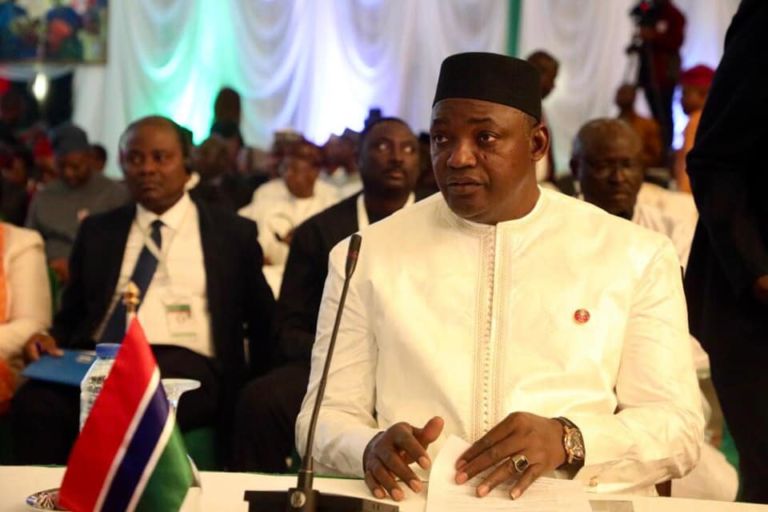
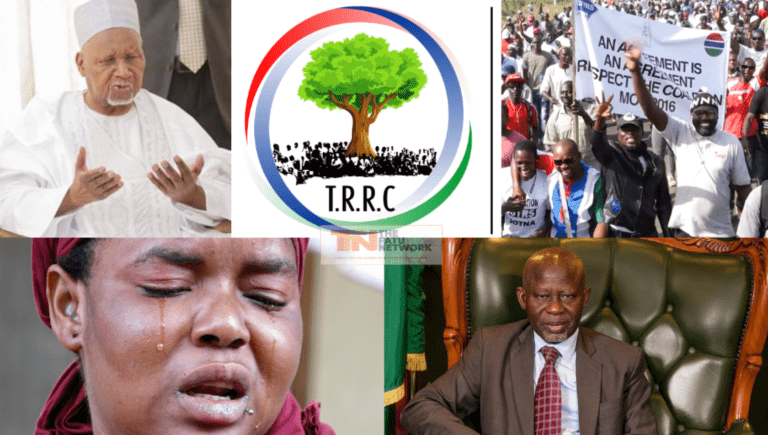

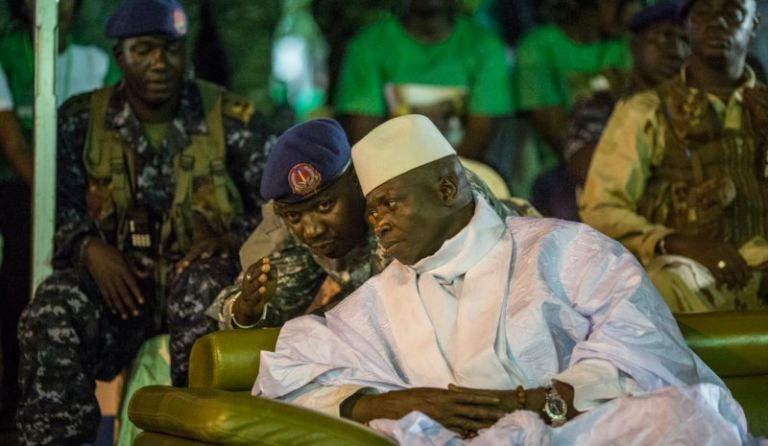


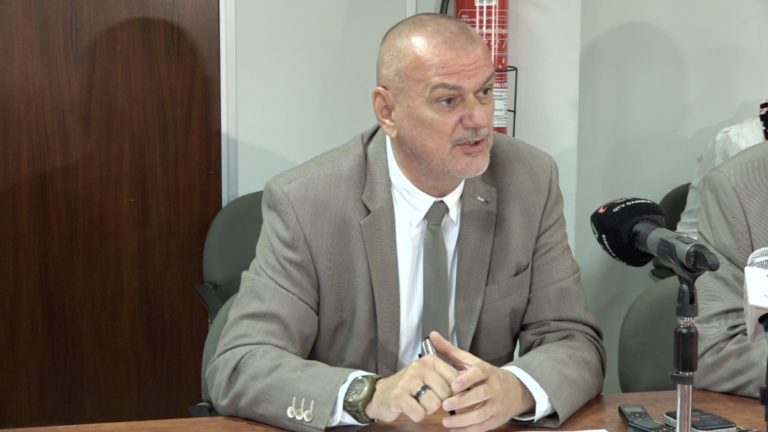

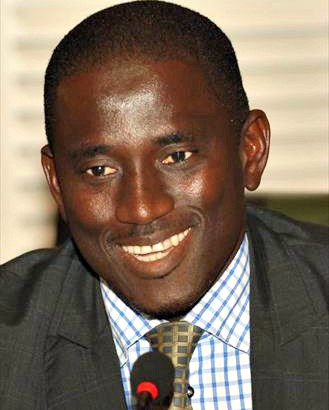

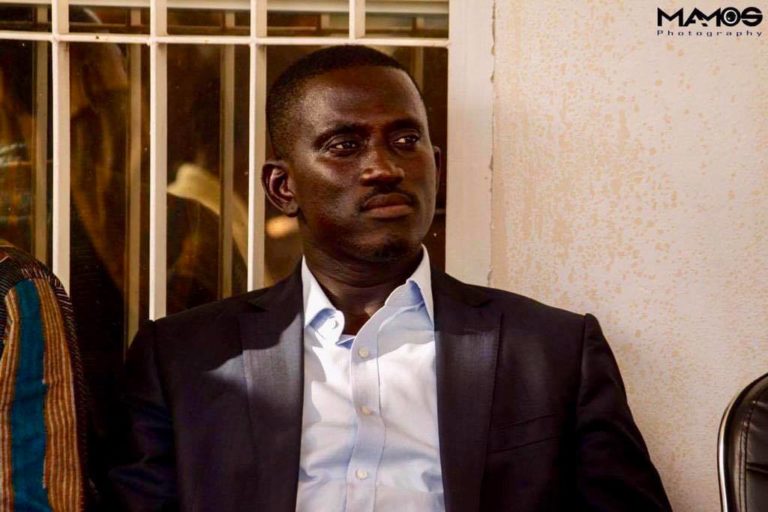
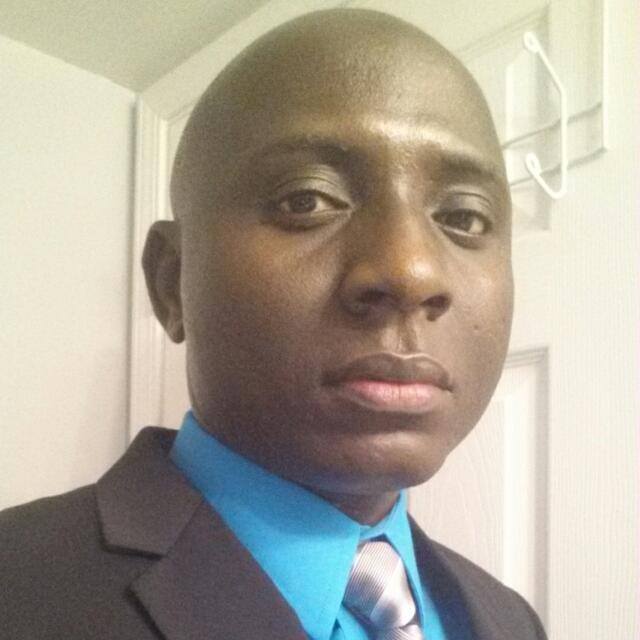

Can the State be but secular: the word, principles and practice?
In one of my last classes, a co-learner said “Lenn, I’m confused about secularism. What is it that they are fighting over?” I briefly explained and promised to share my thoughts. To her and everyone who has been confused, I hope this helps to de-confuse you. Let me start by saying a word is not just a word in the social world, words construct the world. In Onuf’s term, “…we make the world what it is…by doing what we do with each other and saying what we say to each other…talking is undoubtedly the most important way that we go about making the world what it is” (2013: 4). I am sure that both Muslims and Christians will agree with Onuf’s proclamation as both Scriptures affirmed the importance of words as: “in the beginning was the word” and “He just says be, and it becomes”. Therefore, when people fight over words, we should not be surprised. However, we should be able to debate in civility.
The word secular and its derivative secularism have been contested for long in theology and academia. In fact the Oxford Dictionary gave a multitude of meanings which may be summed as ‘non-religious, temporal, civil’ as opposed to ‘clergy, religious’, etc. But such is the nature of words; their usage over time and across space lends them different meanings. On the other hand, every political science student knows that relying on a dictionary to understand a political concept may be necessary but it may be fatal. For this reason, political scientists prefer the operationalization/contextualization of words/concepts. In fact this is widely practice in other disciplines including law.
According to An-Na’im (2008), secular is derived from the Latin word saeculum which means “great span of time” or “spirit of the age.” The meaning gradually changed into “of this world”. It is during the 13th Century that the term appeared in English denoting civil clergy men and clergies in churches. From this meaning, a dichotomy of two worlds was created. It is from that dichotomy the popular meaning of secular as privatization of religion was derived. According to this meaning, there is the spiritual world and the nonspiritual world. But by the 16th century, secularism had lost its neutral meaning. Further explaining the evolution of the terminology, An-Naim argued that in Europe, secular came to mean the “the privatization of church lands to the secularization of politics and, later, art and economics”. Politics being what it is, the rule of men by men ought to be left in the hands of men. It is from this meaning that secular practice was seen as being anti-religion. The church was no longer seen as a legitimate custodian of land and an adjudicator. Land became that of the state for development purposes.
Therefore the contest has always been about power and resources. Unfortunately, this has been confused with the secularization of people and society despite the two being different. Nandy (1998) and Chatterjee (1998) challenged secularism as part of the modernization project. Greenawalt (1998) challenged the possibility of rationality, which he sees as the hallmark of secularism. Connoly sees it as a new form of dictatorship. Attas, argued that it separates man from his religion. The opposition of the Gambian anti-secularism camp is not different from these views. Dr. Omar Jah Jnr., leader of CC said secularism is ungodly. It is “disbelief in god” and Sheikh Hamma adds that it is the foundation of Lesbianism and Gay Rights.
However, An-Naim (2008), warned that “secularism does not mean the exclusion of religion from the public life of a society…” It is a mediator between competing religious groups in the state. This is the word. It is therefore wrong to refer to secularism as a religion except if Dr. Jah wants to make it one. Going by Dr. Jah and his compatriots’ definition, Christians wouldn’t advocate for secularism. Likewise Muslims in India would not have been calling for the maintenance of the secular state in their protest against the Hindu Nationalist government.
Arguing that secularism is anti-religion or is the gateway to lesbianism or ungodliness is a mere fad as the claim that democracy means “doing what you want”. Both claims are not true. It is only when we construct it as such that it will be. In fact, democracy meant the direct participation of Athenians in political life but this meaning has become largely untenable. Political concepts change with practice just as words and such is secularism. Therefore, there is a need to distinguish between a secular state and a secular society in principle. And so far, the calls made have been on state secularity as submitted by the Christian Council and many Muslims. Since the issue is whether the state should be secular or non-secular, it is necessary to establish what this state is.
The state is a philosophical construct which yields a political reality. And philosophically, the state cannot be but secular. It is people who can be religious or irreligious because belief is an expression for the living. There must be a capacity to know and feel for one to belief. Also, the impossibility of belief must exist for one’s belief to be genuine. For one to believe there must be the choice to disbelief but the state doesn’t have such an option. The state cannot belief or disbelief. It cannot know or feel or choose, thus the state in reality cannot know or support a religion. At the basic level, the state is just a philosophical construct.
To bring that philosophical construct into reality, its features must be constructed. Such include the population, the boundary, the government, legitimacy, etc. But all of these ‘real features’ are just philosophical until they are defined. Who define them? We the people! The Population itself is defined by the people. That is why the CRC is consulting Gambians on who shall be a Gambian citizen. The government is defined; its composition and roles are all defined. Who defines it? We the people! Legitimacy is equally defined by the people. Therefore, assuming, claiming or proving who is a Gambian and the Gambia as a state becomes a reality only out of our construct. This is the reality of the state. It is constructed under rationality and sometimes irrationality. Therefore, whatever the sum of the state is defined to be is only a human construct and has nothing to do with Allah or God, hence the claim that the state cannot be separated from religion is not true.
That is to say, if we declare that the Gambia is not a secular state that must be another philosophical construct which we must instill with some realities. If we say that Gambia is a religious state, we are the ones making that claim and from there we try to instill some practices which we think or believe befits a religious state. From there we start to say which laws, rules and regulations apply to our ‘state’. That practice itself would be based on intellect, thus it is only appropriate for the state to be secular. Secular means that the state neither belief nor supports any religion because the state doesn’t know, it doesn’t belief. It is it. The state doesn’t. However, society being constituted by people can be religious or irreligious based on the viewer’s perspective.
I do not think anyone will ask for the secularization of the society. The Gambia has a society of Muslims, Christians, Bahais, and many more. Since all of them have been deemed to be Gambians, being equal in the eyes of the state that sees no religion, it is only ideal that a rational government promotes no religion over or against the other. Therefore, secularity is an ideal for a post-colonial society like ours.
The claim for secularity is much more than philosophical; it is also a practical necessity. Basic tenets of the proper understanding of secularity have been used by many eminent religious scholars and masters. In fact, Khalid Bin Waled was not selected as a leader on many occasions out of religious pity but because of his capacity in strategy. Nizam Al-Mulk has proposed the same meritocracy to Muslim leaders of his time in his “Siyasetname”. This is a secular practice. When the state recognizes no religion, the appointment of individuals based on religious pity becomes irrelevant.
With secularity, a Muslim leader will not say I will appoint X because he is a very good Muslim neither will a Christian say let us appoint Mr. Y as government officer because he is a Christian. Neither will anyone say let us not appoint a Jew because he is Jewish. To each for his capability and from each on his capability is the basis of appointment in a secular state. It must be added that with this, people are held accountable and not their religion. Since all men are fallible, they should be held accountable as individuals and not their religion.
An argument that has been put forward by the anti-secularist camp is that democracy is rule of the majority and Muslims being the majority must have the state defined in their wish. This equates saying Mandinkas are the majority and therefore should determine the official language of the country. That is sectarian democracy brothers. We must install neither a tyranny of the majority nor a sectarian democracy. Also, the anti-secular state camp argues that since Muslims are majority and pays more taxes than any other, they should have the final decision. This equates saying that KMC pays more taxes and should determine the state of affairs. Rationality requires that taxes are redistributed to those who cannot produce enough; hence the deductive analysis is illogical. The best form of democracy is one which sees no minority. We know this because sectarian democracies are the most fragile as we can see in Iraq, Lebanon and Somalia etc. It is a line that has torn societies apart and we must not take that path. If we install a sectarian democracy here, we will all die and go to hell as the killer and the killed in the last days are all destine for hell says the beloved.
It has been further argued that the Gambia has never been secular in its history. I am willing to learn which Gambia they are talking about. Most of the Kingdoms and Chiefdoms of this country had been secular until the emergence of the Maba Jahus, Foday Sillahs, may Allah be pleased with them. If the kingdoms were not secular, why were the wars fought I ask. And the most retarded statement is: it was not in the past constitutions, hence no need to have it. That equates saying “my father never had a telephone and he was in touch with his people, thus I need no phone”. In fact if An-Na’im’s definition is adopted, “a secular state [is] one that is neutral regarding religious doctrine, one that does not claim or pretend to enforce…the religious law…” it becomes clear that the Gambia had been secular in principle as well as in practice.
Section 25 states that “(2) No association shall be registered or remain registered as a political party if…it is formed or organised on…religious…basis” while Section 100 subsection 2 forbids parliament from “establish any religion as a state religion”. Furthermore, Section 25 of the constitution gives everyone the “freedom to practice any religion and to manifest such practice”. Perhaps the most important principle that has been uphold in line with secularism is Section 1.1: “[the] Sovereignty of The Gambia resides in the people of The Gambia from whom all organs of government derive their authority and in whose name and for whose welfare and prosperity the powers of government are to be exercised in accordance with this Constitution”. It is secularism which guarantees that sovereignty is with the people because people are rational and should therefore select who leads them and welfare policies. The maintenance of these clauses in the Draft Constitution upholds secular principles. Thus it is only natural to insert the word ‘secular’.
In practice, a typology is usually relied upon as a framework of analysis to understand the relationship of state and religion. Men often decide that their state is secular, theocratic or atheist and in between may lay some hybrids. The theocratic state is one where Sovereignty resides in the ruler and whatever he says becomes binding as he is the vice-regent of God or Allah. Such a ruler may combine political and judicial powers or may bestow religious power on another. In such a state, opposing the ruler is blasphemy. Only the faithful or believers in the recognized religion can hold public office. In theocratic states, it becomes the responsibility of the state to maintain places of worship and there is a state machinery to propagate the religion.
Atheist states on the other hand eliminate religion from the public. There are no minarets or domes to indicate public worship, neither are religious holidays observed by the state nor is the ringing of church bells or calling for prayers allowed. Typical example would be Albania under Enver Hoxa, and the then Federation of Yugoslavia. That is atheism and not secularism.
Between the atheist state and the religious state, is the secular state. It neither promotes any religion against the other but it doesn’t seek to eliminate religion. This is the current and appropriate meaning and operationalization of secularism. We have fought for independence together with our Christian and Traditionalist believers to live as equals. That is why we must enjoy the same rights and privileges. That is why there should not be any majority or minority.
I do know that elsewhere people who claimed to be Christians, Buddhists, Jews are persecuting Muslims or denying them their rights. We know places where Christianity is proclaimed to be state religion or receives preferential treatment from the state but we must not emulate those states. As a government of The Gambia fights for the Rohingya Muslim for equal treatment from the government of Myanmar, it is only appropriate for us to build a secular constitution for ourselves and a model for the world.
To my Muslim brothers, our religion is one that seeks the heart of men and not their heads. Every Muslim should strive to be the embodiment of the goodness in Islam in his personality. If he does, his light becomes a radiance that enlightens the world. With that personality, you need not have a government that supports your religion. This is how people like Mam Mass Kah, Cherno Baba Jallow, Moriba Darboe, Sheikh Ahmad Bamba, Alhaji Malick Sy, Bai Niass attracted followers who became outstanding Muslims. With their religious pity, their families, friends and even enemies came to settle with them. They did not need a government to support their religion. In fact, some of them lived under anti-Islamic governors. You may call me a disbeliever but my religion is Islam, the Kaaba is my cardinal point in Prayer, Muhammad is my Messenger, and Allah is my Lord. I pray that the real meaning of Islam manifests in my heart so that I will never recourse to state aid in my religion.
The writer, Muhammed Lenn, holds a Master’s degree in political science and international relations from Trakya University in Turkey